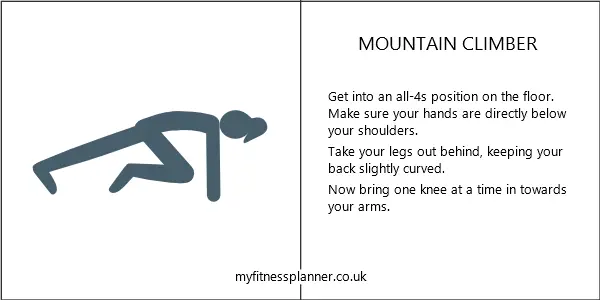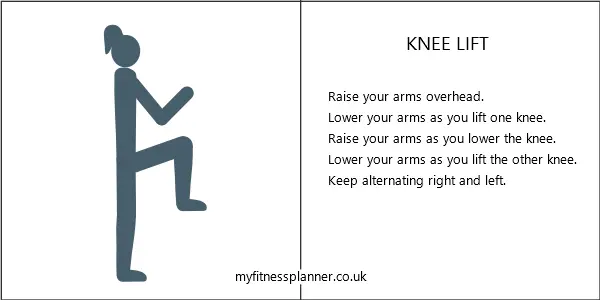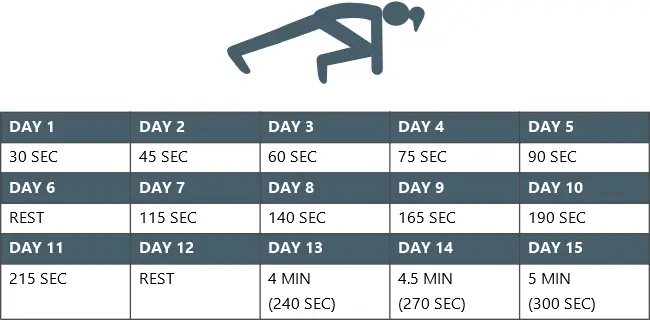The mountain climber works your core muscles, shoulders, chest, and back, as well as being a high intensity cardio exercise and good for balance and coordination. You can do it anywhere – it doesn’t need equipment or much space. However, the mountain climber isn’t an ideal exercise for beginners. This is partly because it’s high intensity and partly because getting the technique right can be difficult for beginners. If you’re a beginner, then see below for some ways to build your strength and stamina up before trying this mountain climber challenge.
The challenge is 15 days long and goes from 30 seconds of mountain climbers to 5 minutes. You’ll need a timer – ideally some sort of stopwatch. A phone app or online stopwatch will be fine. You should wear training shoes to do this exercise, it’s uncomfortable to do it barefoot.
Mountain climber challenge chart
The chart shows how long you should do the mountain climber for each day to build up to 5 minutes. Instructions for the exercise and warming up are below the chart. Please also see these general safety notes.
How to do the mountain climber

Warm up
Before you do the challenge each day, warm up by doing knee lifts for 20 seconds:

Alternatives for beginners
If you’re a beginner, you can build up to doing the mountain climber with other exercises:
You can build up your cardio fitness with walking or running.
To strengthen your hip flexors, which are the muscles that bring the knees to the chest in the mountain climber, you can do knee lifts, as shown in the warm up above.
The basic mountain climber position is similar to plank position, so doing plank holds will train your core and upper body to hold the position.
The benefits of the mountain climber exercise
The mountain climber combines strength training with dynamic movement, making it a very efficient body weight exercise. One of the main benefits of mountain climbers is activation of the core muscles. As you alternate driving your knees toward your chest, your abdominals, obliques, and deep stabilizing muscles (such as the transverse abdominis) must stay constantly engaged to keep your spine stable and your hips from sagging. Over time, this improves both core strength and endurance, leading to better posture and a stronger core.
At the same time, your shoulders and upper body work hard to stabilize the position. The static contraction that is held throughout the exercise builds shoulder strength and stability. There are also cardio benefits gained from the repeated leg drives and the whole exercise challenges coordination.


